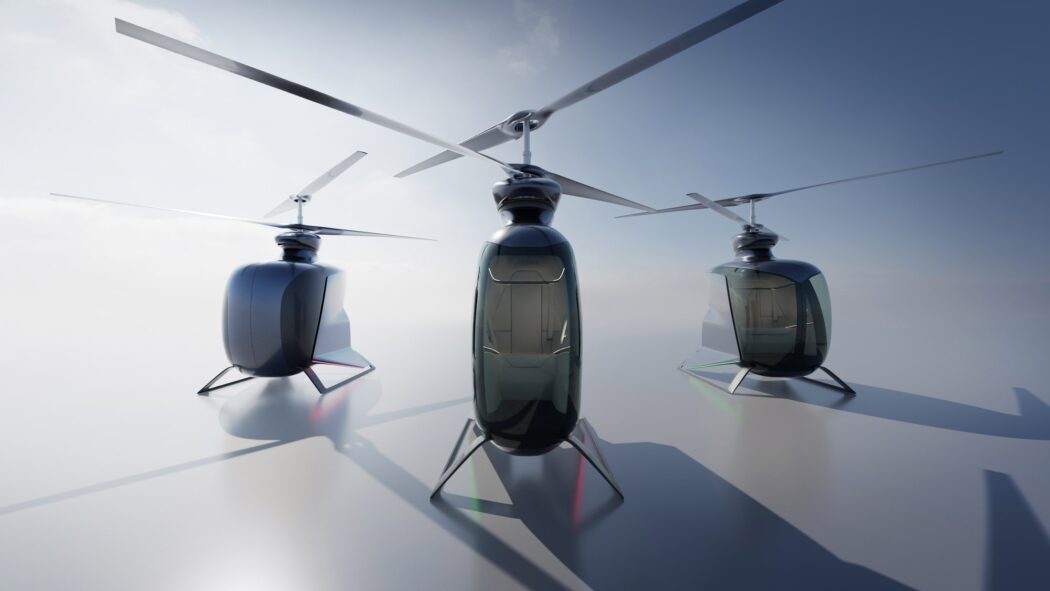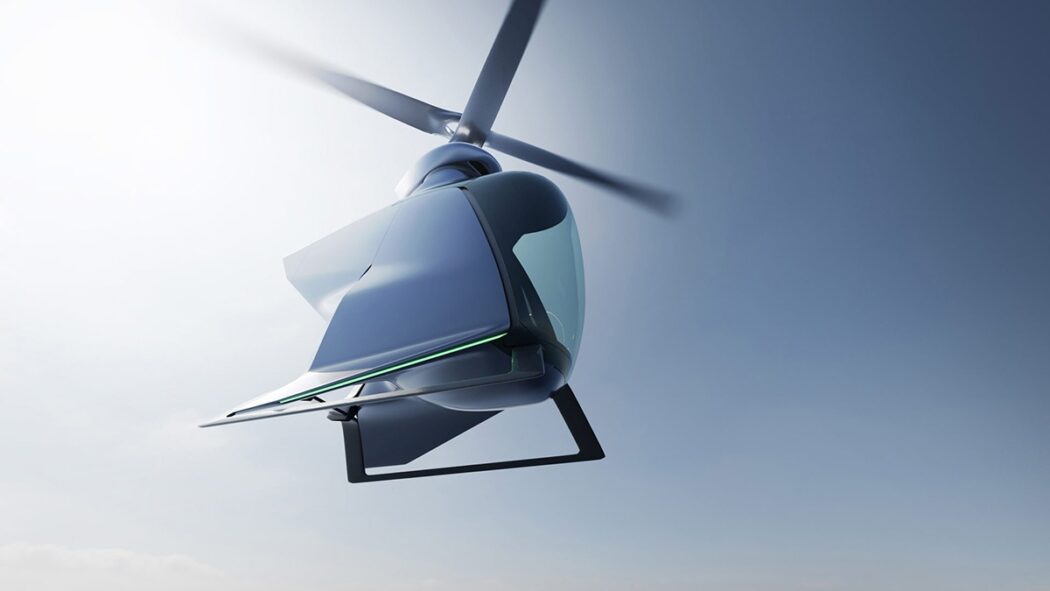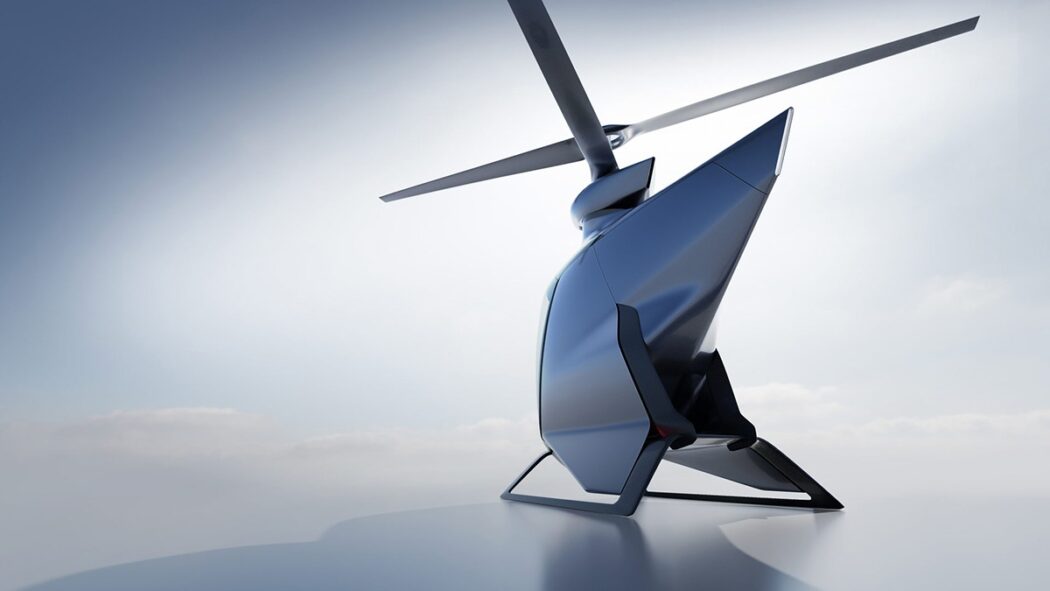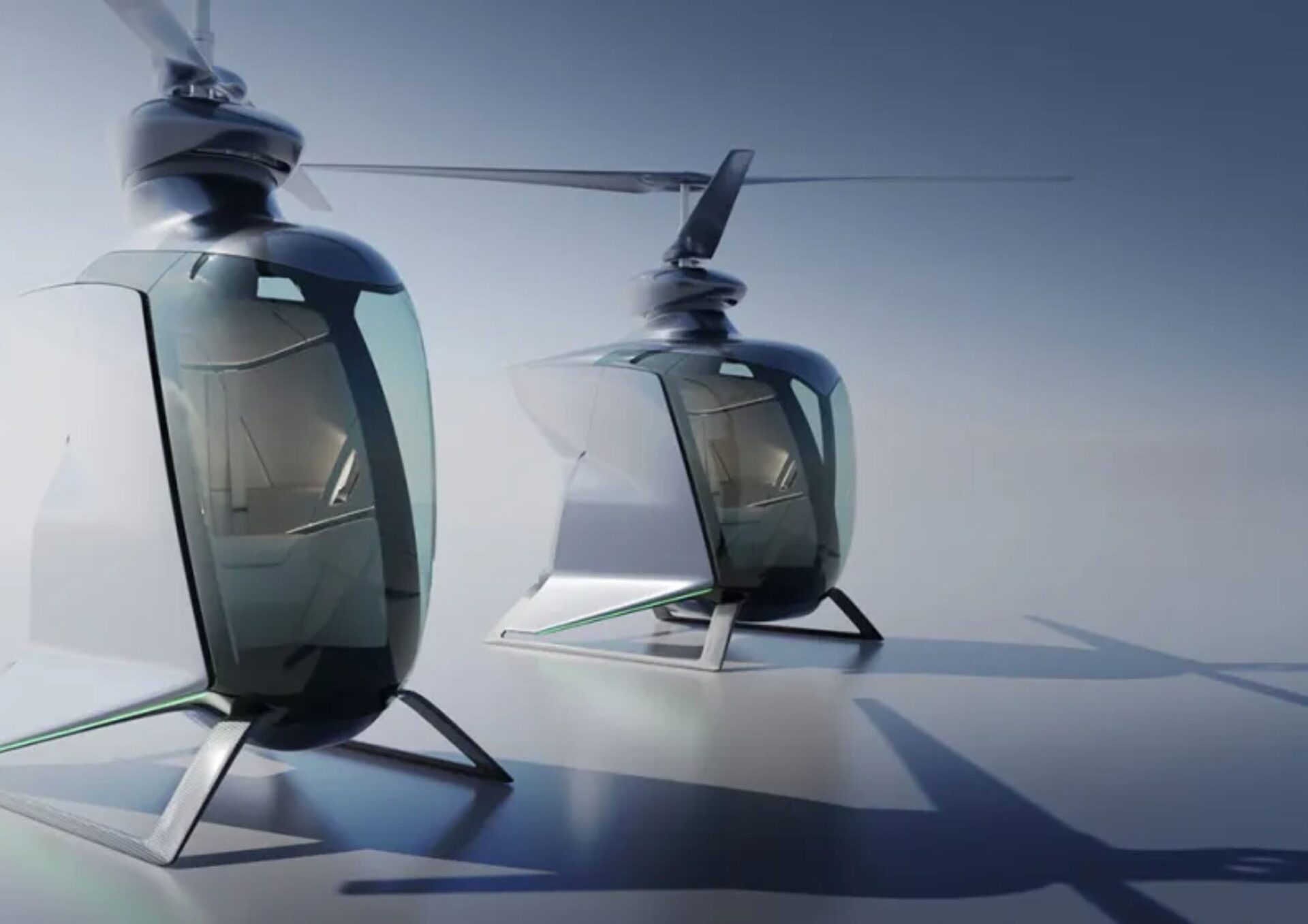FlyNow is gearing up for a major debut. The Austrian startup is developing an impressive fleet of electric helicopters to support the World Expo in Saudi Arabia in 2030.
The announcement was made by FlyNow cofounder and COO Yvonne Winter and shared by Mohammed AlQahtani, CEO of Saudi Arabia Holding Co., on LinkedIn. The plan involves deploying thousands of compact electric helicopters to transport visitors across a sprawling 600-hectare site in Riyadh. The aim is to enhance mobility and promote sustainability throughout the expo. FlyNow also plans to establish manufacturing facilities in Saudi Arabia within the coming month to begin production. Robb Report has contacted FlyNow for additional details on the rollout but has not yet received a response.

The design of FlyNow’s electric helicopters emphasizes sleekness and simplicity. Instead of a traditional tail rotor, these helicopters are equipped with two coaxial rotors stacked vertically and spinning in opposite directions to counterbalance torque. The rotors are designed to produce noise levels below 55 decibels at 490 feet (150 meters) altitude, which is roughly equivalent to a conversation between two people.

These helicopters will be equipped with an automatic flight system (AFS), enabling them to follow predefined routes and flight plans. Unlike fully autonomous aircraft, which chart their own course and make real-time adjustments, the automatic system relies on established routes. FlyNow notes that while automatic flight has been reliably used in aviation for many years, fully autonomous flight remains a future development, with the European Aviation Safety Agency predicting it will not be feasible until after 2030. The planned fleet is expected to comply with current regulations.

However, the 2030 timeline poses several challenges. FlyNow must arrange for charging and storage facilities for the fleet during the expo. Additionally, flight paths will need meticulous planning to avoid accidents. The company faces the formidable task of constructing “thousands” of helicopters within six years. Although FlyNow successfully tested a full-scale prototype at Salzburg Airport in the summer of 2023, the aircraft has yet to be seen in operational flight. Given the rapid advancements in technology, significant progress is anticipated over the next few years.



